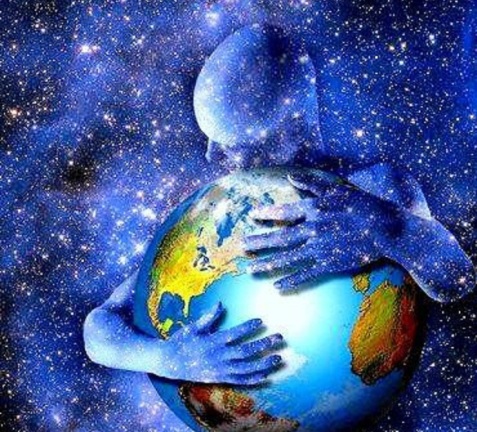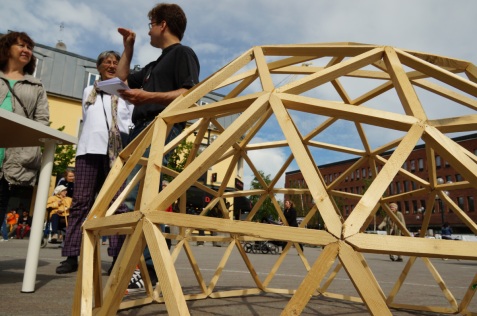By Enrique Lescure
Introduction
For 46 consecutive years, we have celebrated Earth Day, and yet the status of this planet is worsening. On the sixth Earth Day, in April 1975, we were in the process of the first overshoot of our global footprints. Since then, we have used up a larger and larger share of the Earth’s diminishing reserves, crowding out eco-systems to replace them with linear activities.
We have all the opportunities in the world to change the course, and a lot of things are undoubtly done. What is happening now however is that improvements are local and implemented within either regions (by political demand) or within companies (due to genuine convictions and green marketing), but in the same time, things like fracking and tar sands are exploding on the market, the cattle industry and meat production beats all-time records, and the main concern for decision-makers within both the western sphere and the BRICS sphere is how to maximise economic growth.
What forces are genuinely interested in saving this must plead, beg, work hard for little to no economic gain and almost apologise for struggling to save the lives of all of us, while those who are more responsible for the current state of our world would never have to worry about being homeless, about having to move around or whether they would have to buy food or medicines.
This post is devoted to those heroes of our time.
The tale of Alexander and Ann-Sofie
Alexander Bascom and Ann-Sofie Svensson.  A young couple in Umea, Sweden, who are passionate about innovation and aquaponics, they founded Green Free Will back in 2012, and sought resources to realize their dream of constructing automated biodomes which would transform our entire relationship with food. Their tale is one of love, struggle, many setbacks and triumphes.
A young couple in Umea, Sweden, who are passionate about innovation and aquaponics, they founded Green Free Will back in 2012, and sought resources to realize their dream of constructing automated biodomes which would transform our entire relationship with food. Their tale is one of love, struggle, many setbacks and triumphes.
Entering a collaboration with the Earth Organisation for Sustainability, Green Free Will was awarded an agricultural development grant from the European Union, which however took a long while before it arrived due to the bureaucratic structure of the application. When it finally arrived, we were all overjoyed, and so the construction could commence during the late summer of 2014.
Today, I feel privileged to announce that the last part of the grant was recently transferred to EOS, and is now transferred to Green Free Will, so they can do the last work on the dome before the next phase of the project begins. It fills me with happiness that Green Free Will’s project will receive a much needed morale booster.
Alexander’s and Ann-Sofie’s story is awesome, though not unique. Everywhere throughout the world, there are idealists struggling both to make their household economics hold together, and to initiate revolutionary innovative projects that will change the way we look at the world. This vanguard of the garages is a bright hope for humanity during Earth’s darkest hour in 65 million years.
One of the purposes of the EOS is to cooperate with and help people who burn for projects to realize them. As a small organisation, we sadly do not have unlimited resources. By helping us, you will help people like Alex and Ann-Sofie and organisations like Green Free Will to network and expand.
Ultimately, what we all are struggling for is the very foundation for our existence. In this matter, you are either for life or for death.
So thank you Alex and Ann-sofie, Richard, Jonathan, Stefan, Maria and the others! You are making the world a better place!











